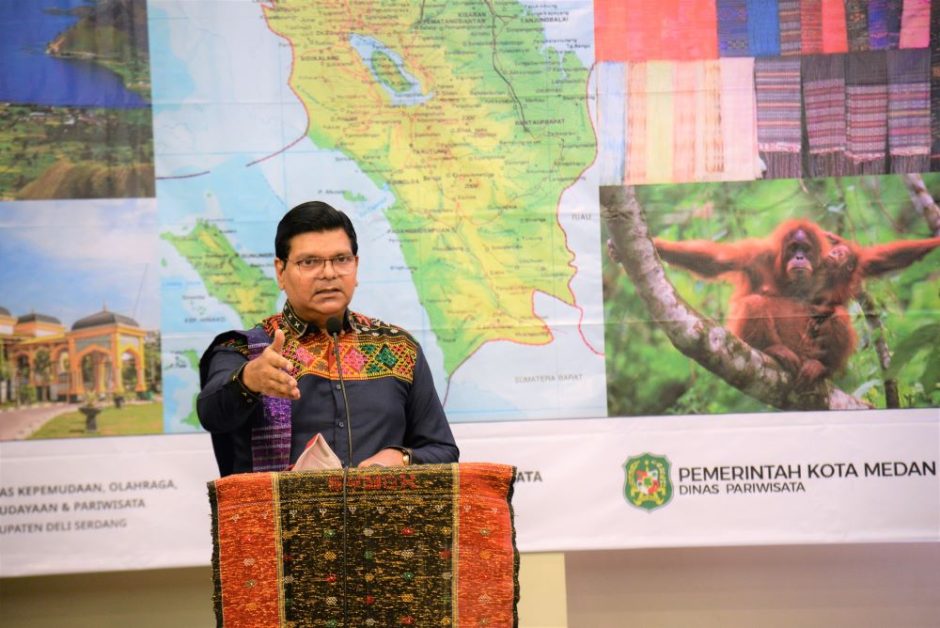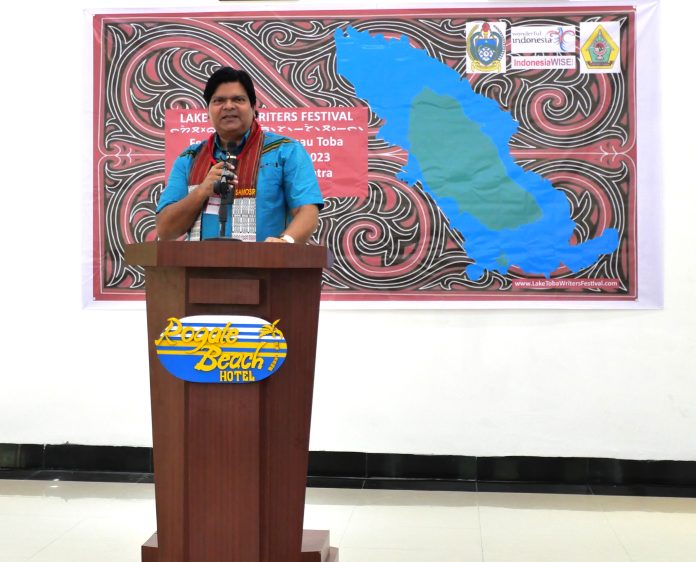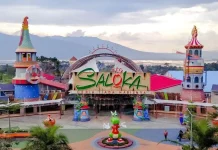Amol Titus – Collaborations, Conservation and Creative Writing among the Batak of Lake Toba
While people are quite familiar with the writings, sustainability expertise and several decades long contributions to Indonesia-India relations, not many are aware about his significant collaborations, conservation efforts and creative writing inspirations among the Batak people of Lake Toba. This spectacular lake is in North Sumatera and is one of the sought after tourist destinations in the country. For centuries it has been home to the unique culture of the Batak people.
Given the strong component of culture, traditions and relationships in his writings and poetry, it is quite natural that Amol Titus was drawn to this region. Poonam Sagar of www.indoindians.com caught up with Amol for an exclusive interview on his experiences and contributions in the region.
P.S: Thank you Amol for taking time out from your hectic schedule to speak to Indoindians. While you have made many multi-faceted contributions across the past two and a half decades in Indonesia, we have learnt that several of these focused on the Lake Toba region of North Sumatera. Can you please elaborate on these?
AT: Thank you, Poonam. I apologize for the reclusiveness that is often associated with creative writers. In my case that is also combined with travels and projects related to sustainability and conservation. In fact, it is the environment that first drew me to Lake Toba. My work in sustainable manufacturing, supply chains, tourism and finance had initially made me aware of the issues in the region.
Despite the blessing of a great environment comprising freshwater lakes, rivers, natural rain forests, rare flower, insect, bird and animal species, the island of Sumatera has also suffered from high levels of deforestation, pollution and loss of species. Of particular concern to me has been the plight of Sumateran elephants, orangutans and tigers. These wonderful species are all seriously endangered and if deforestation is not controlled due to ever expanding pulp and paper, oil palm and timber plantations, they are not likely to survive by the time Indonesia celebrates 100 years of her independence in 2045.
To make a meaningful contribution I pioneered some multi-stakeholder initiatives. One of these relates to Sustainable Tourism. Since Lake Toba is identified as one of 5 super-priority destinations by the central tourism ministry it has received considerable attention in terms of tourism promotion. Due to this and improving infrastructure tourist arrivals are steadily increasing especially from domestic tourists.
However, as has been seen in other destinations like Yogyakarta and Bali, tourism development if not properly managed can result in adverse impacts on the environment. Therefore, through the ‘Pure Toba – Toba Murni Sustainable Tourism Development Initiative’ we have been working with multi-stakeholders to ensure environment friendly practices are urgently adopted. Some of these include usage of eco-materials like bamboo during construction, energy management, water conservation which is a critical issue since fresh water is scarce in populated areas like Samosir, minimizing waste and plastic pollution and usage of locally grown produce.
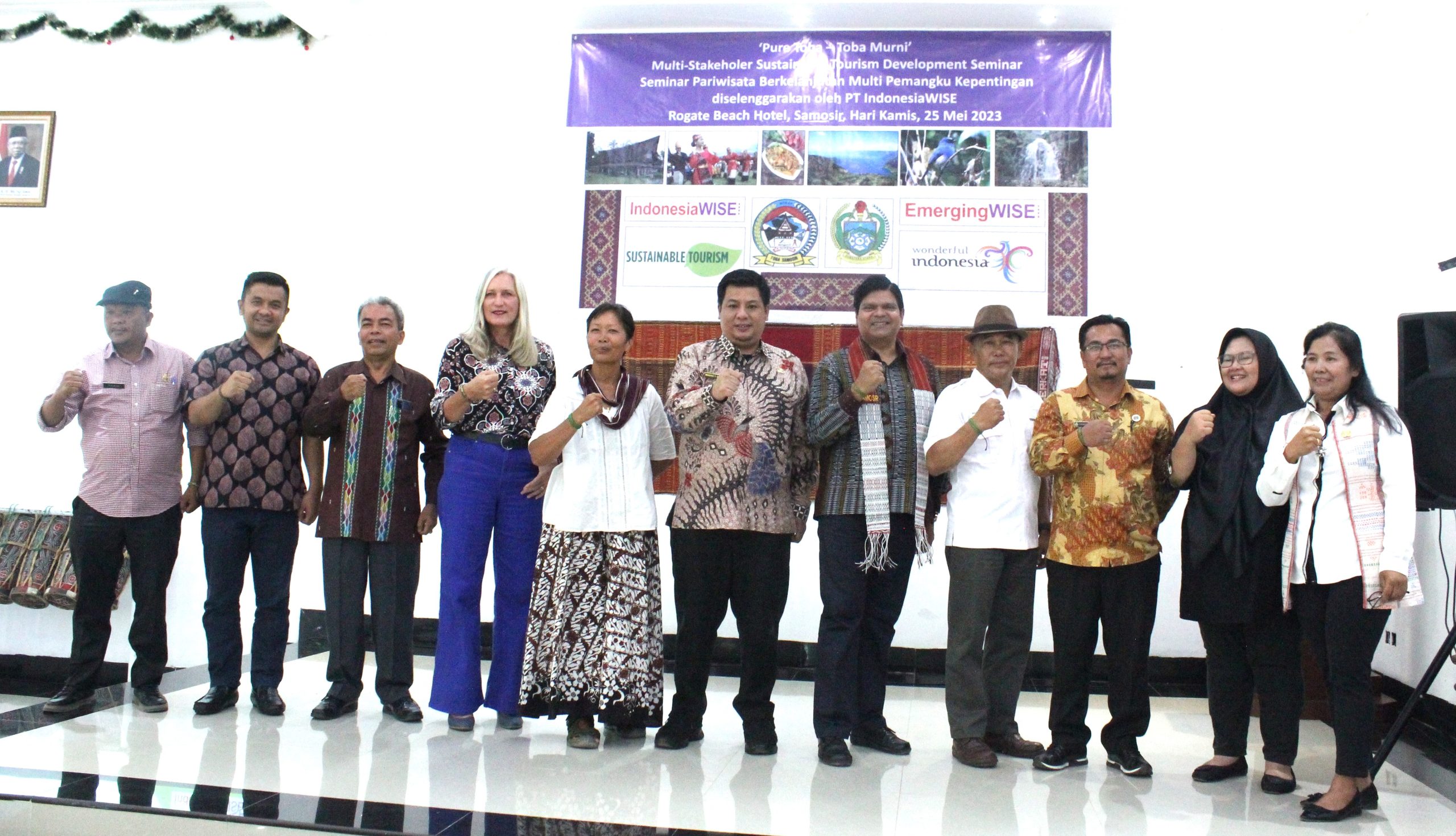
P.S: That’s wonderful Amol. How has been the response?
A.T: Its been very positive though it is an uphill battle. As those of us living in Indonesia are acutely aware, the country has not been able to shake off its addiction to plastic. The menace of this unsightly product is seen in tourist destinations. Plastic bottles, packets, sachets, construction materials and sheets are finding their way into growing landfills and sadly entering the lake.
‘Pure Toba – Toba Murni Sustainable Tourism Development Initiative’ has made policy suggestions such as installation of garbage bins across the island, sorting, recycling and composting of waste, environment campaigns on using cloth bags and personal water bottles and enhancement of public transport. There is need to ban single use plastics, install water dispensers in public places and schools where individuals can refill personal water bottles and ensure hotels have proper water treatment plants to prevent untreated sewage from entering the lake.
Fishing practices also need to become more environment friendly with proper handling of waste. Zoning restrictions are also critical as the area is prone to landslides and some recent constructions are not consistent with the ecological beauty and traditional architecture of the Batak people.
We are making the local government and hotels aware that sustainable tourism practices are mandatory not a nice-to-have. Lake Toba must not fall into the cycle of ‘Discovery-Boom-Decay-Disrepute’ that has happened to several famous destinations that fell victim to over tourism and excessive construction that ended up ruining the resident and tourist experience.
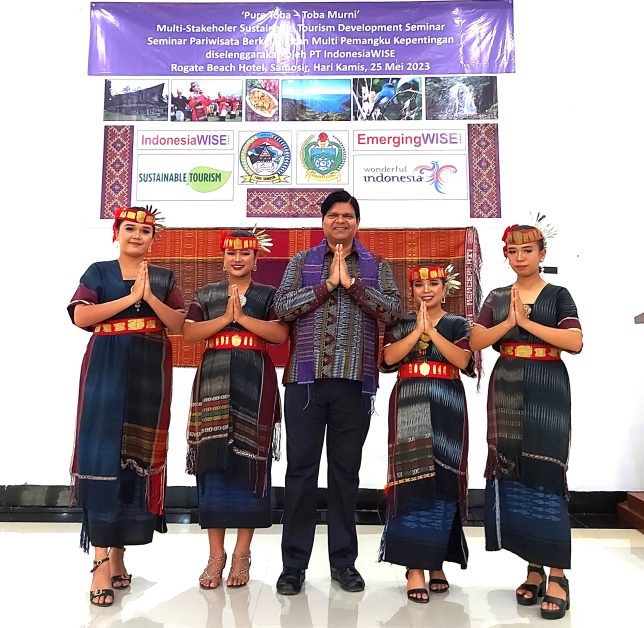
P.S: They are indeed lucky to receive your expert guidance. Tell us about your other collaborations.
A.T: Environment is one of the three main pillars of sustainability. The other two are Community and Culture. My work on environment brought me into contact with the Batak community and other inhabitants of the region. Once Batak find your intentions to be sincere and long term, they respond well and are very welcoming. Over the years I have made strong friendships in North Sumatera in areas like Medan, Deli Serdang, Bukit Lawang, Silangit, Balige, Parapat and Lake Toba.
I got a chance to experience culture close hand in the company of my friends who took me beyond the off-beaten touristy track to discover the richness of music, dance, handicrafts, sculpture, art, cuisine and language. Like other regions of the country there are mythologies, legends and philosophies that I have enjoyed learning about and contemplating.
P.S: Has this triggered creative writing inspirations similar to your earlier lovely collection of short stories, poems and a play inspired by Indonesia titled ‘Me Sambal You Chutney’?
A.T: Yes, a collection of poetry and a novel are close to finalization and should be released before the end of the year. Both are influenced by the distinct culture, philosophy, topography, anthropology and traditions of the region. They explore the entire gamut of emotions from happiness to sadness, discovery to loss and artificiality to meaning. I have just completed a novel titled ‘The Calling of Flower Sellers’ set in North India and its soft launch will be at the Lake Toba Writers Festival that will be held from 14-16 September 2024 at Samosir island.
P.S: Congratulations on your new book. We will do a separate feature on it. Please tell us about the Lake Toba Writers Festival 2024?
A.T: It has been called “the annual Toba caldera gathering of writers, readers and culture lovers”. The Festival is trilingual as it celebrates Literature in English, Bahasa Indonesia and Batak. Regional, national and international writers participate along with academics, students, media, officials and tourists. Tributes are paid to famous writers each year. This year tributes will be paid to poet Sitor Situmorang whose 100th birth anniversary year is commencing shortly and Pramodeya Ananta Toer who is the country’s best-known novelist.
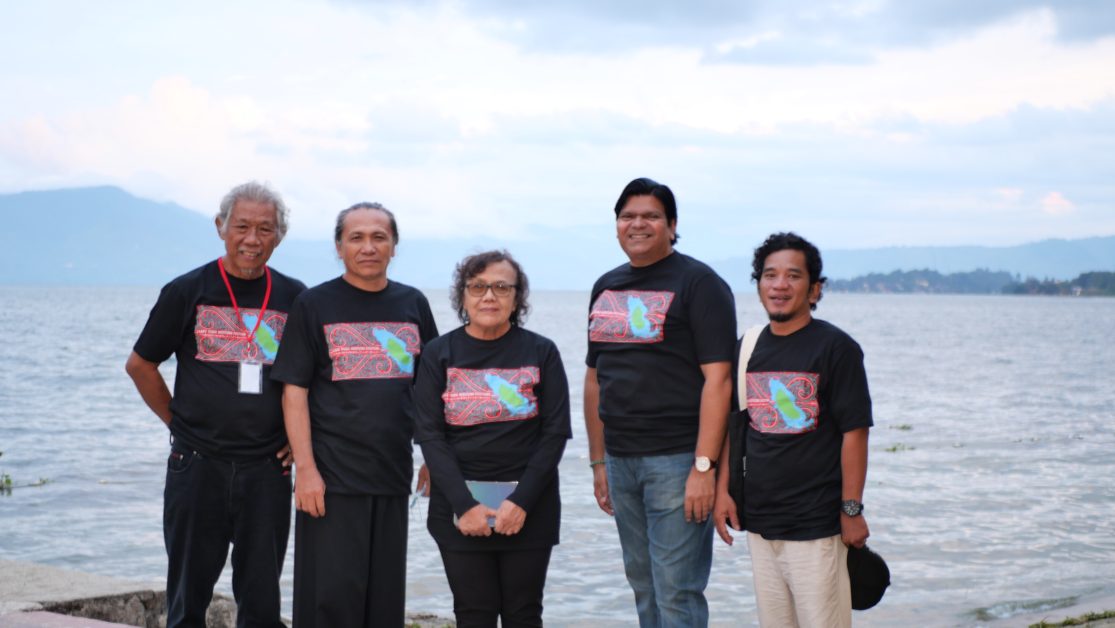
The festival also undertakes CSR activities like community engagement, tree planting, teacher training, books donations and sponsorship for the revival of Opera Batak. Each year a performance of the Opera Batak is included in the festival agenda because there is a close affinity between Literature and Theatre, and we want to explore this. My friend Thomson Hutasoit will be directing the performance that will be staged in an open theatre at Pangururan Waterfront City on 15th September.
P.S: We wish the event success and are proud of your many contributions to the region and to Indonesia. Any final words?
A.T: I would like to emphasize the importance of water conservation to your readers. My experience at Lake Toba has taught me that water bodies do not only physically sustain us, but they can also emotionally and intellectually sustain us. They nurture, nourish, revive and rejuvenate us during our good and bad times, highs and lows of life. Intellectually waterbodies like lakes, rivers, oceans, seas and waterfalls can stimulate our creativity and imagination. We all therefore have an obligation to treat water as a blessing and use it responsibility.
